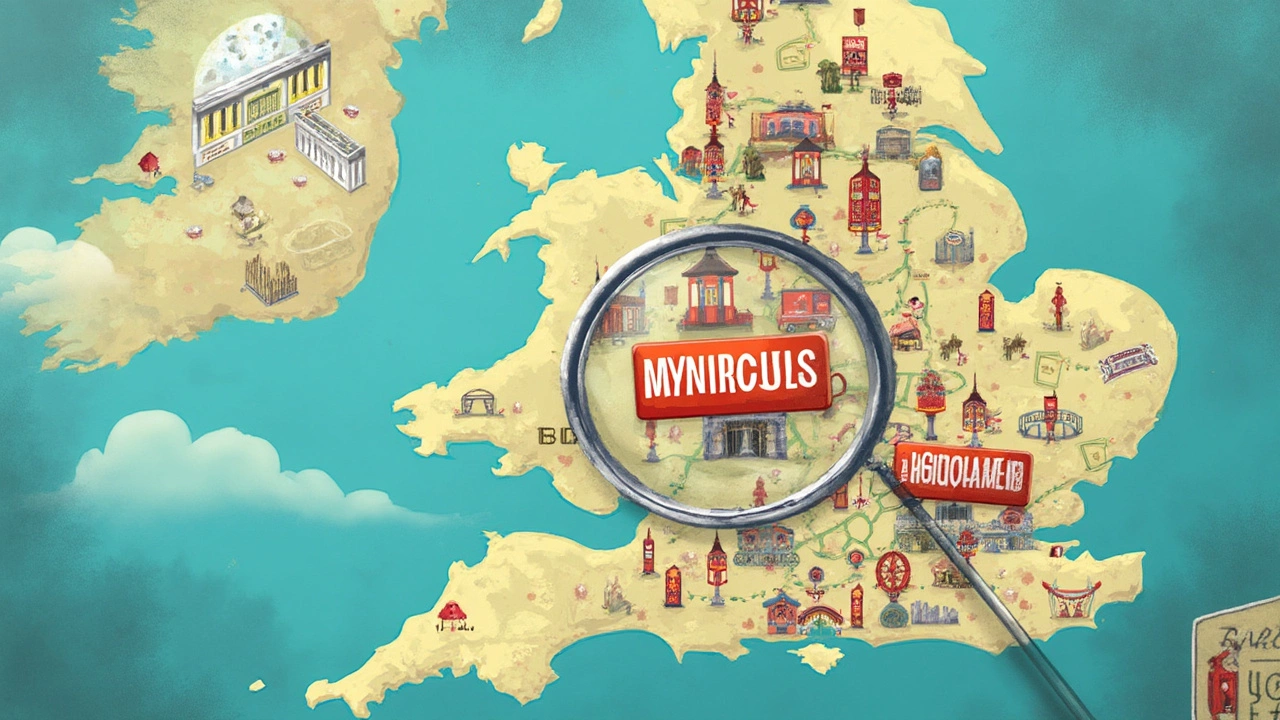Can I Refuse to Pay Resort Fees at All-Inclusive Hotels?
3 Apr, 2025Ever opened your hotel bill and felt a bit blindsided by those sneaky resort fees? You’re not alone. These extra charges can feel like a slap in the face, especially at all-inclusive hotels where you thought everything was covered. So, are you just stuck with paying them, or do you have options?
First off, what exactly are resort fees? They often cover amenities like gym access, Wi-Fi, or pool use, which sounds reasonable unless you had no intention of breaking a sweat during your beach vacation. Hotels say these fees keep room rates competitive. But the real question is, can you just refuse to pay them? In some cases, the answer might actually be yes!
Before you start a big fuss at the check-out desk, know what you’re dealing with. Resort fees aren’t always presented upfront when you book. Sometimes they trickle in as a post-booking surprise. Knowing when and where these are disclosed is key to disputing them effectively. So let’s dig into the nitty-gritty of how you can possibly escape these fees without ruffling too many feathers or missing out on that dreamy vacation vibe.
- Understanding Resort Fees
- What Do Resort Fees Cover?
- Are Resort Fees Legally Required?
- How to Dispute Resort Fees
- Tips to Avoid Paying Resort Fees
- Knowing Your Rights
Understanding Resort Fees
Alright, let's break down what these resort fees are all about. At face value, they're additional charges that hotels tack onto your nightly rate, which a lot of travelers find frustrating. They cover a bunch of extras that you might not even use during your stay, like gym access, beach equipment, or sometimes just the privilege of using hotel facilities.
Here’s a tip: these fees can range from $10 to $50 per night, depending on where you stay. And yes, that can add up, especially if you’re on a family trip or extended vacation. A lot of people don’t notice them until they're checking out. That's when you get your bill and see this extra cost you weren't expecting.
Why do hotels charge these fees anyway? Well, it’s partly about keeping their advertised room rates lower so they look more competitive online. But the real kicker is that by making these amenities 'mandatory', they bundle them into the hotel charges, which boosts their bottom line without appearing to raise the room cost.
Knowing that these fees aren't always disclosed upfront helps when you're booking your next all-inclusive hotel. Sometimes you have to dig a bit deeper into the booking details or call the hotel to get the full picture. Transparency isn’t their strong suit here.
In all-inclusive hotels, you’d think you’re paying one price for everything, right? But even these places can apply resort fees to cover extras outside their main package. It’s like a sneaky way of handling costs that could easily have been included in the all-inclusive pricing.
If you’re feeling puzzled about why you're paying for something you didn't choose, you're definitely not alone. The good news is, understanding how these fees work gives you a leg up in potentially contesting them or opting for places that don’t charge them in the first place.
What Do Resort Fees Cover?
Alright, let's dig into these sometimes sneaky resort fees. What are you actually paying for? Typically, these fees cover a bundle of services that can vary from hotel to hotel. It’s like buying a combo meal—you might not need the extra fries, but they come with the deal whether you want them or not.
Here's a rundown of what these fees might include:
- Wi-Fi Access: This is probably the most common feature. It’s pretty much a must-have these days, but yeah, you might end up paying extra for it.
- Fitness Center Access: If you feel the urge to pump some iron during your stay, great. But if you’re more about sipping cocktails by the pool, you’re still paying for it.
- Pool and Sauna Privileges: These are classic resort amenities. Even if you don’t swim, you might get charged as if you’ve mastered the butterfly stroke.
- Complimentary Phone Calls: Some places throw this in, though who’s really using the room phone when you’ve got a cell in your pocket?
- Newspapers: A little old-school, but sometimes they include access to local or national papers as part of the package.
- Parking: Sometimes your wheels aren’t free to park. The fee might cover valet or self-parking spots.
A surprise to some, these charges can add a substantial sum to your overall hotel bill. They've become more of a trend in recent years to help hotels advertise lower room rates while still bringing in revenue through the back door. All-inclusive hotels particularly use them to seem more budget-friendly than they really are.
Here’s a quick look at how average resort fees can stack up:
| Location | Average Daily Resort Fee |
|---|---|
| Las Vegas | $35 |
| Hawaii | $30 |
| Florida | $25 |
So, being informed about what you’re accepting (and paying for) can at least give you some peace of mind or perhaps even some bargaining power. Now that you know what these fees usually cover, you might want to ask yourself if the services are worth the extra cost for your specific needs. That could be the key to challenging these pesky fees down the line.
Are Resort Fees Legally Required?
One big question most travelers have is whether resort fees are legally binding or not. The truth is, resort fees land in a bit of a gray area in terms of legality. While they're not mandatory by law, hotels can charge them as part of their pricing structure.
Unlike taxes, resort fees are set by the hotel and can vary widely. The catch is how they're disclosed. Legally, hotels have to make you aware of these fees before you complete your booking. If the fees pop up after you've already made your reservation without proper notice, you might have a case to dispute them.
A study by the Federal Trade Commission (yes, they actually looked into this) showed that consumers often find these fees confusing and feel misled when they're hidden until after booking. That's not just you—it's a real issue!
Some states are looking into making stricter rules about these fees. For instance, back in 2023, there was buzz about legislation that aimed to make all mandatory fees clear upfront in the booking process. While there's no federal law banning resort fees, consumer pressure and awareness might lead to clearer practices in the future.
If you're booking a room, the best thing you can do is check the total cost before you confirm anything. Look for any fine print or hidden details during the reservation process. It's not about refusing to pay what you owe—it's about knowing exactly what you're signing up for. So always keep your eyes open for these charges from the get-go!

How to Dispute Resort Fees
So, you've found yourself staring at a resort fee you didn't expect and you're considering taking a stand. Here's how you can go about disputing these pesky charges. It's not always a guaranteed win, but armed with the right approach, you've got a shot at knocking that fee off your bill.
First things first, check your original booking confirmation. Make sure there was no mention of resort fees. If there wasn't, you're in a stronger position to argue your case. Document this as evidence, because when you're standing at the front desk, having proof can really make a difference.
The timing of when you dispute the fee matters too. The sooner, the better. Ideally, you want to catch these surprises at check-in rather than check-out. Addressing it immediately shows you're not trying to pull a fast one just before you leave.
If you're feeling a little nervous about confronting the hotel staff in person, try calling the hotel directly. Explain your situation calmly and respectfully. When people feel you're on their side, they're more willing to help you out. Sometimes just asking nicely works wonders.
Many hotels manage these fees through third-party booking sites. If you booked through one, consider reaching out to the platform. They may advocate on your behalf or even refund the fee themselves, especially if the fee wasn’t clearly disclosed upfront.
In your quest, dropping some knowledge about hotel fee regulations could be useful. For instance, some U.S. states have laws around fee transparency. You'll find this particularly in Nevada and Florida, where a lot of resort fee disputes occur. Hotels there must disclose the fees during booking.
Finally, if you find that the fee is non-negotiable, you can still leave a clear and honest review online. A well-articulated review about hidden resort fees might not help you immediately, but it could deter others or motivate the hotel to adjust their policies in the future.
Tips to Avoid Paying Resort Fees
Not a fan of hidden costs lurking in your vacation bills? Let’s figure out how you can dodge those pesky resort fees without breaking a sweat. While not foolproof, these tips might just help you keep some extra cash in your pocket.
- Choose the Right Hotel: Some hotels advertise as having "no resort fees," saving you the hassle right from the start. Check online reviews or call ahead to confirm.
- Leverage Loyalty Programs: Regular guests or members of a hotel’s loyalty program often get fees waived as a perk. It's a great excuse to stick with brands where you’ve accumulated status.
- Ask Politely: Sometimes, simply asking for the fees to be waived during check-out works wonders, especially if you didn’t use any of the amenities covered by the fee.
- Book with Points: Reservations made with reward points are occasionally exempt from these fees. Double-check with the hotel at the time of booking.
- Pay Attention to Booking Platforms: Use online travel agencies that may include the fees in the upfront cost or offer deals where fees are irrelevant.
In the battle against hidden hotel charges, knowledge is your sidekick. Remember to keep the conversation friendly and informed. Even if you do end up paying, at least you've given it your best shot. Maybe you’ll uncover a loophole that others haven't!
Knowing Your Rights
It might seem like you're at the mercy of the hotel's rules when it comes to resort fees, but knowing your rights can empower you to take action. The good news is, there are guidelines and regulations that, at least in some regions, have your back.
In many areas, especially in the U.S., hotels are required to disclose all fees upfront. This means any resort fees should be clearly stated before you complete the booking. If you discover these fees were sneaked in afterward, you're in a stronger position to dispute them. Transparency is key, and regulations like the FTC Act are designed to protect consumers against deceptive or misleading practices.
If you're unsure whether resort fees apply, do a bit of homework before booking. Look for the total price, including any additional charges, before you hit that 'book now' button.
- Check the hotel’s website: Sometimes the fine print is actually on the hotel’s own page, tucked away like a hidden Easter egg.
- Call and confirm: Hotels still deal with humans. Give them a ring and ask directly about any extra charges.
- Booking sites: Often, third-party sites will outline these fees more transparently than the hotels themselves.
If you feel the charge is unjust, speak up. Chat with the manager or customer service and state your case. It's easier to negotiate a fee away than you might think, especially if it wasn't clearly advertised. And when in doubt, always have a copy of your online conversation or email exchanges. Who knew a bit of good old email sleuthing could save you real cash?
So, next time you're packing your bags, armed with this knowledge, you're better equipped not only to enjoy your vacation but also to keep those extra costs in check. After all, isn't feeling like a savvy traveler half the fun?

 by
by